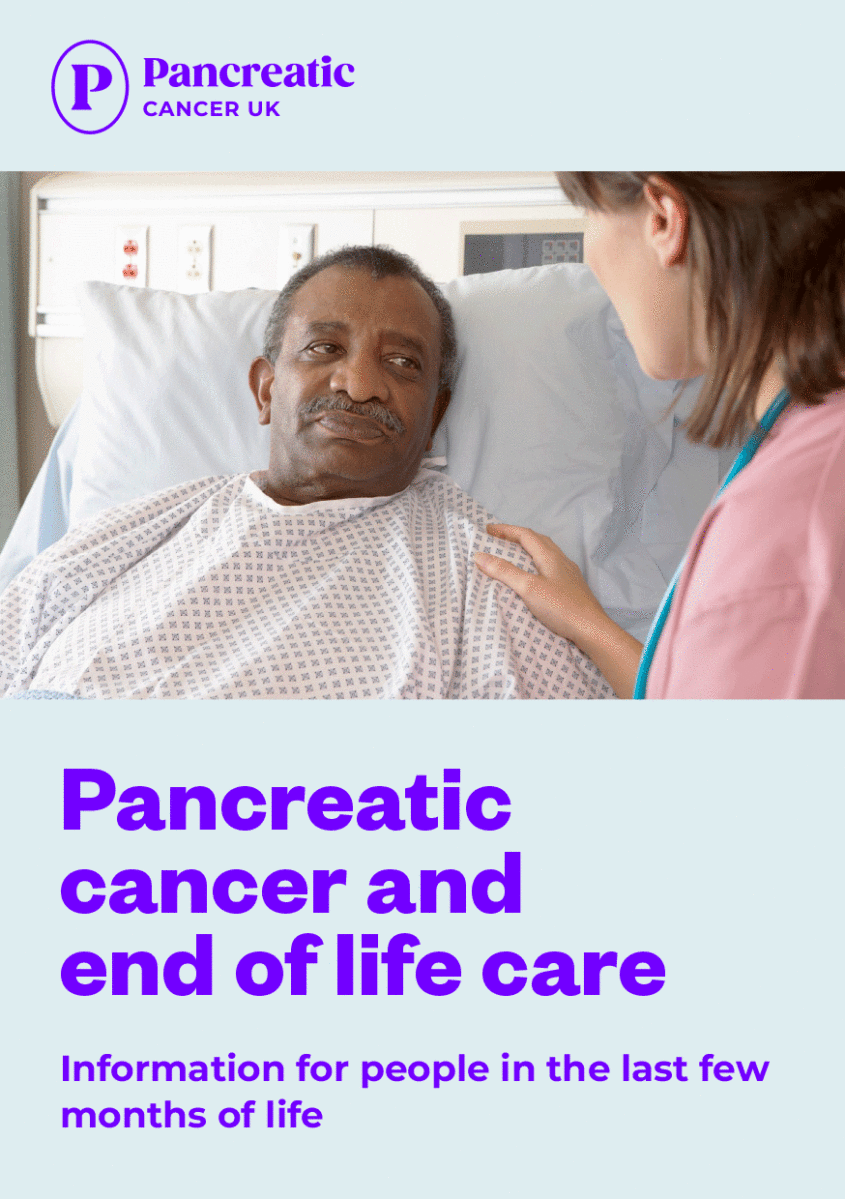Read about other symptoms at the end of life
- Pain towards the end of life
- Fatigue at the end of life
- Diet and digestion at the end of life
- Weight loss and reduced appetite towards the end of life
- Feeling and being sick at the end of life
- Stomach emptying slowly towards end of life
- Bowel problems towards the end of life
- Swelling (ascites and oedema)
- Jaundice in the last few months
- Bedsores towards the end of life
- Anxiety and depression towards the end of life
There are ways to manage pain towards the end of life. Tell your doctor or nurse straight away about any new pain, or your pain gets worse. The sooner you get treatment, the better the chance of getting the pain under control.
How is pain managed?
There are different ways to treat pain. These include:
- painkillers, including paracetamol and ibuprofen, and stronger painkillers called opioids, such as morphine
- some medicines that are usually used to treat other health problems can also be used to treat pain – these include some antidepressants, steroids or drugs that are used to treat epilepsy
- a nerve block, which is a procedure that blocks the nerves around the pancreas from sending pain messages to the brain. This treatment isn’t suitable for everyone. It may be done at a specialist centre, and you will need to be well enough to have this procedure.
Your healthcare team can increase your painkillers, or change the way you take pain relief to help control the pain.
There are also other things that can help you deal with pain, such as complementary therapies.
What is a syringe driver?
Your doctor or nurse may suggest a syringe driver (sometimes called a syringe pump) to give you a steady flow of painkillers. This means that you get your pain relief continuously.
A syringe driver is a small machine which is attached to a needle that is put in under the skin. It can also be used for other medicines, such as anti-sickness medicines. Or it can be used if you can’t swallow tablets, or you are being sick. You can move around while using a syringe driver, and can use it at home as well as in hospital or a hospice.
Questions about pain?
If you have any questions about pain, speak to your doctor or nurse.
You can also speak to our specialist nurses on our free Support Line.


Read our booklet about end of life care
To read more about pain towards the end of life, download our booklet, Pancreatic cancer and end of life care. Information for people in the last few months of life.
You can also order a physical copy.


Published August 2024
Review date August 2027

